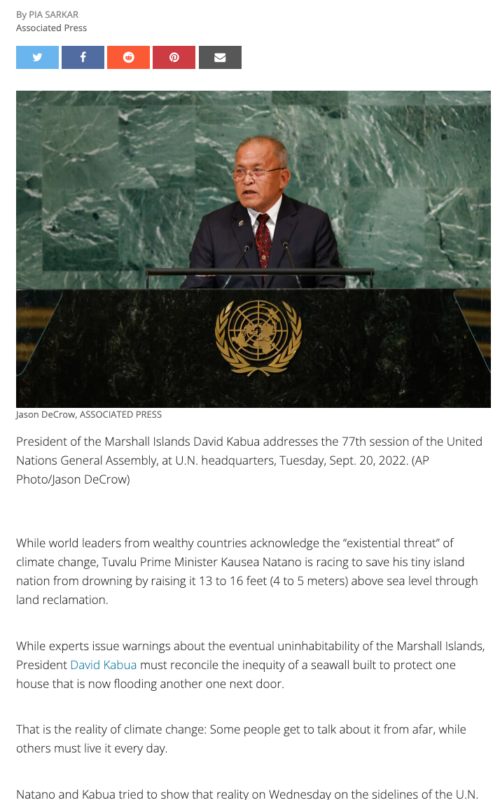Media coverage
Share

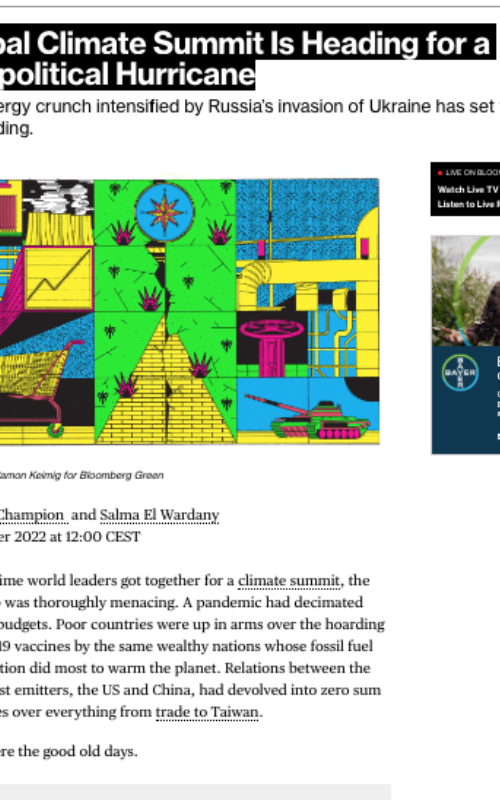
Bloomberg
Bill Hare speaks to the current push for fossil fuels in response to the energy crisis, saying “I have rarely seen such a concerted effort by the oil and gas industry to, in one way or another, push back against the climate agenda.”

The Canberra Times
A group of 10 high-profile Dockers fans, including Climate Analytics CEO Bill Hare, released an open letter encouraging the club to end its relationship with Woodside, the ninth-highest greenhouse gas emitter in Australia for the 2020-21 financial year.
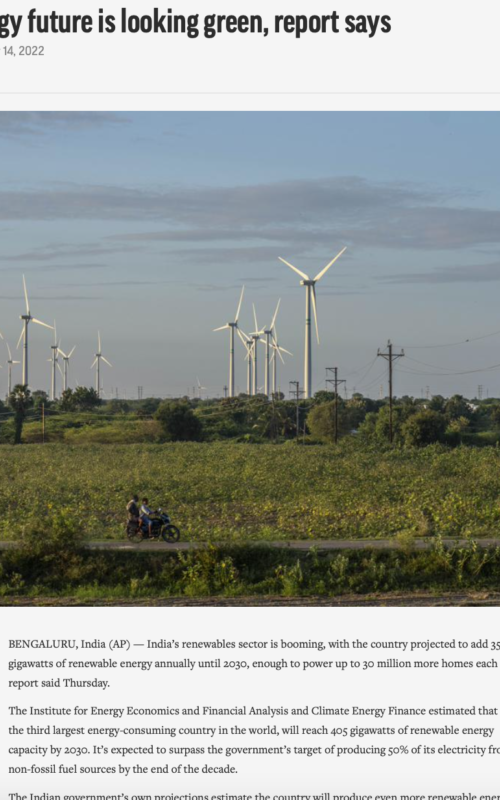
AP
Although India has made significant strides in clean energy, experts say there is still room for improvement. Climate Analytics analyst Nandini Das, argues for a “scheduled retirement plan of the existing coal capacities” and that the current subsidies for fossil fuels in India should be reformed.
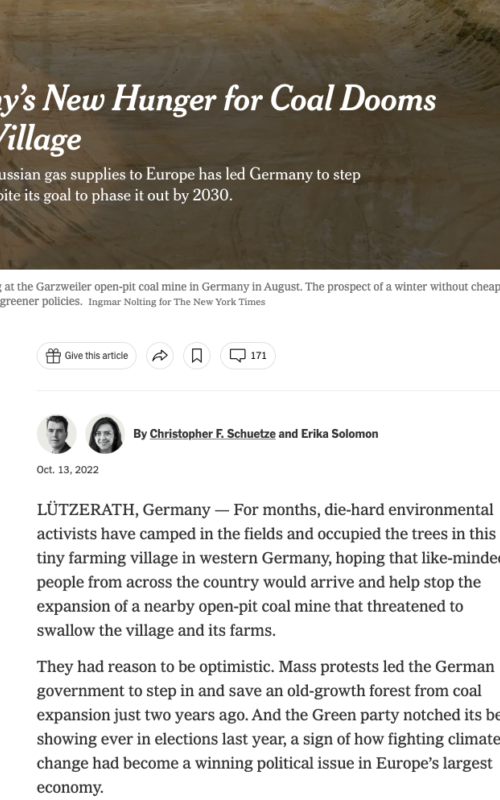
The New York Times
Climate activists fight to protect the city of Lützerath, Germany, a city whose existence is threatened by the increased demand for coal amidst the energy crisis.Climate Analytics' Andrzej Ancygier, says it is too early to know by how much coal emissions will increase, but changes to rules on burning coal will not affect Germany’s long-term progress on renewable energy.
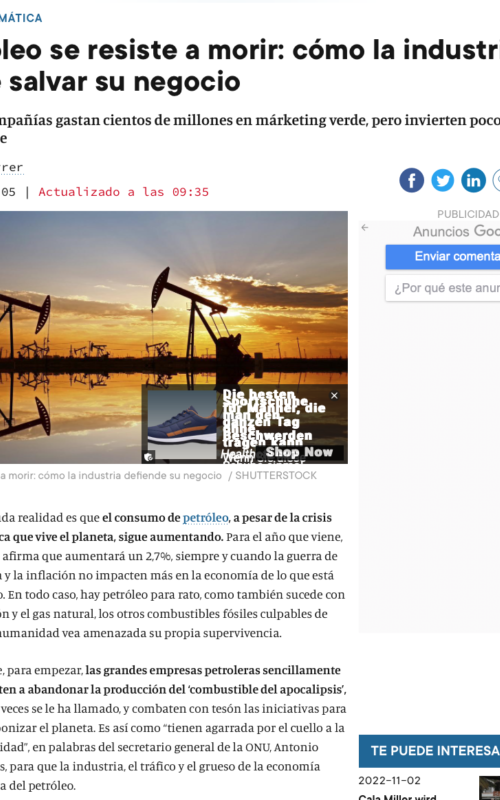
Información
Climate Analytics research concludes that the decarbonisation scenarios to which large global fossil fuel companies such as BP, Shell or Equinor have publicly committed themselves are not ambitious enough to prevent warming above 1.5ºC before 2100.
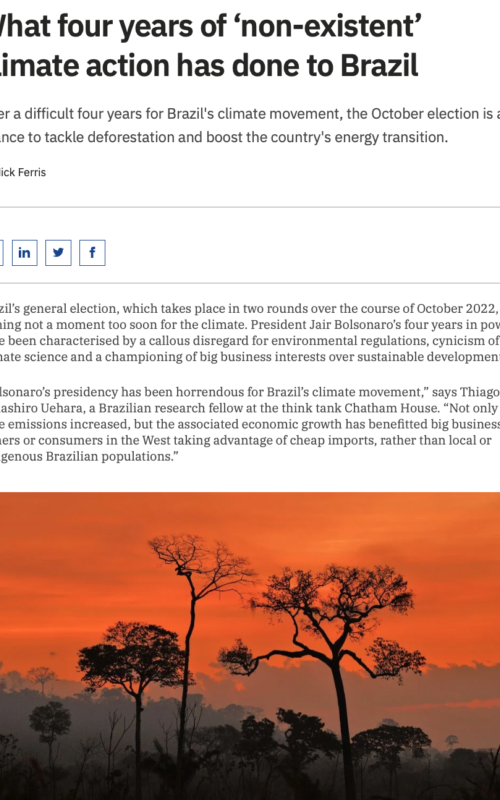
Energy Monitor
“Whether it be Lula or Bolsonaro who comes to power, Brazil has an obligation as the world’s seventh-largest emitter of greenhouse gases to change tack.” - Celeste Gonzalez, explaining that Brazil will not achieve its latest NDC without much stronger regulation.
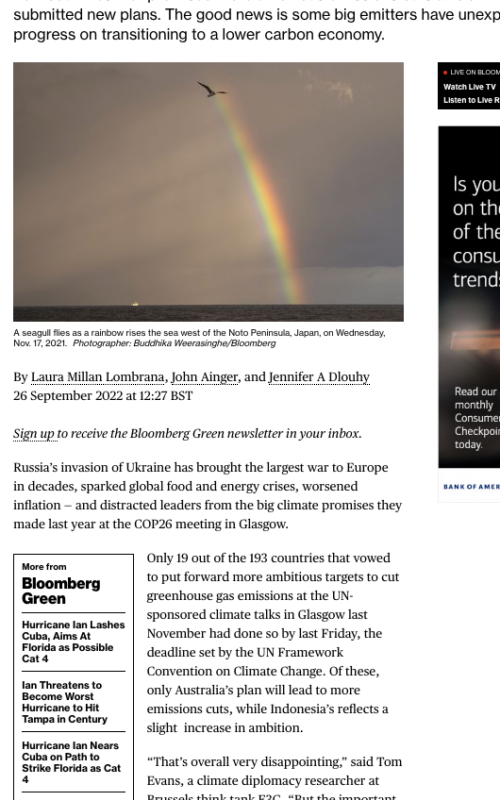
Bloomberg
Bloomberg identifies a few countries that have (and haven't) been proactive in the lead-up to COP 27. Bill Hare covers what Australia has done before the climate summit.
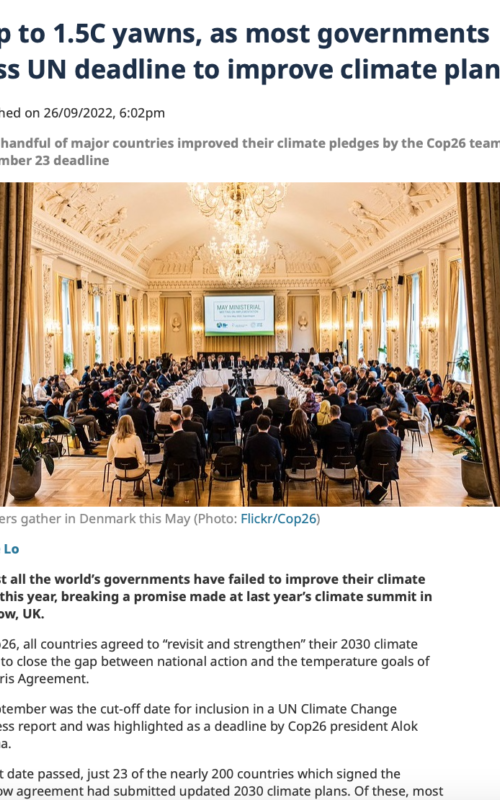
Climate Home News
“The bottom line is there has been really little progress since Cop26. Politics and geopolitics is dominated by the illegal Russian invasion of Ukraine which then sent energy markets into turmoil but still, we feel countries should be moving ahead.” - Bill Hare comments on the state of climate action post-Glasgow, highlighting the importance of closing emissions gap in order to limit warming to 1.5C.

CNN
Our research is mentioned as this CNN piece displays how industrial pollution can damage rock art.
